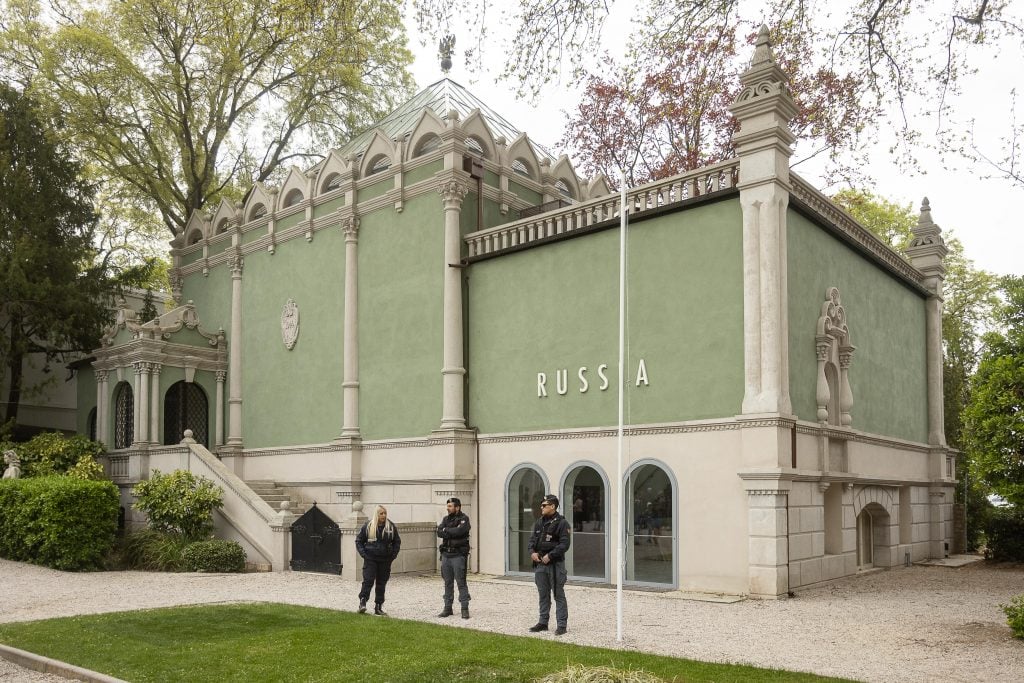Art World
Russia Will Lend Its National Pavilion to Bolivia at This Year’s Venice Biennale
Russia has been competing with China for access to Bolivia's substantial lithium reserves.

Russia has been competing with China for access to Bolivia's substantial lithium reserves.

Jo Lawson-Tancred

Russia has given its unused national pavilion at the Venice Biennale to Bolivia, according to reports in the Italian press. The stately green building in Venice’s Giardini would have remained closed, as Russia is not participating for the second year in a row since its invasion of Ukraine in 2022. Instead, it will be the venue for an exhibition of 25 artists representing the Plurinational State of Bolivia during this year’s 60th edition.
“The Bolivia Pavilion has the opportunity to be inside the Giardini, which is the most prestigious exhibition area of the entire Biennale thanks to the Russian Federation, which believed in the importance, quality, and contents of our project” the pavilion’s organizers told Il Sole 24 Ore. In 2022, Bolivia’s pavilion was housed at the venue Artspace4rent at the address Cannaregio 4120.
The news comes just months after it was widely reported that Russia is one of several world powers vying for access to Bolivia’s substantial reserves of lithium, estimated to be around 23 million tons. The South American country signed a contract with Russia’s Uranium One Group late last year, according to a report in DW.
Organizers of the Biennale did not immediately respond to a request for comment, but the list of national participants on the biennial’s website has been updated with the Bolivian pavilion’s information.
The exhibition is titled “Qhip Nayr Uñtasis Sarnaqapxañani,” which translates to “Looking at the future-past, we are treading forward.” It is curated by Esperanza Guevara, Bolivia’s minister of cultures, decolonization, and depatriarchalization and was commissioned by the deputy minister Juan Carlos Cordero Nina.
“The project brings together artists from Bolivia and friendly countries in Latin America,” they said, “and is an opportunity to share and demonstrate the brotherhood and joy that unite us with these countries. What unites us is the common ground of our Indigenous origins and the vocation to ‘live well’ in harmony and equity among ourselves and with our ‘Mother Earth.'”
Among the artists that will be included are Indigenous weaver Elvira Espejo Ayca, who is also director of Bolivia’s National Museum of Ethnography and Folklore, Amazonian artist Duhigó, the renowned muralist Lorgio Vaca, and self-taught painter Oswaldo “Achu” de León Kantule.
The pavilion presents Bolivia as a Plurinational State, a title that the country adopted in 2009 in in recognition of its Indigenous communities.